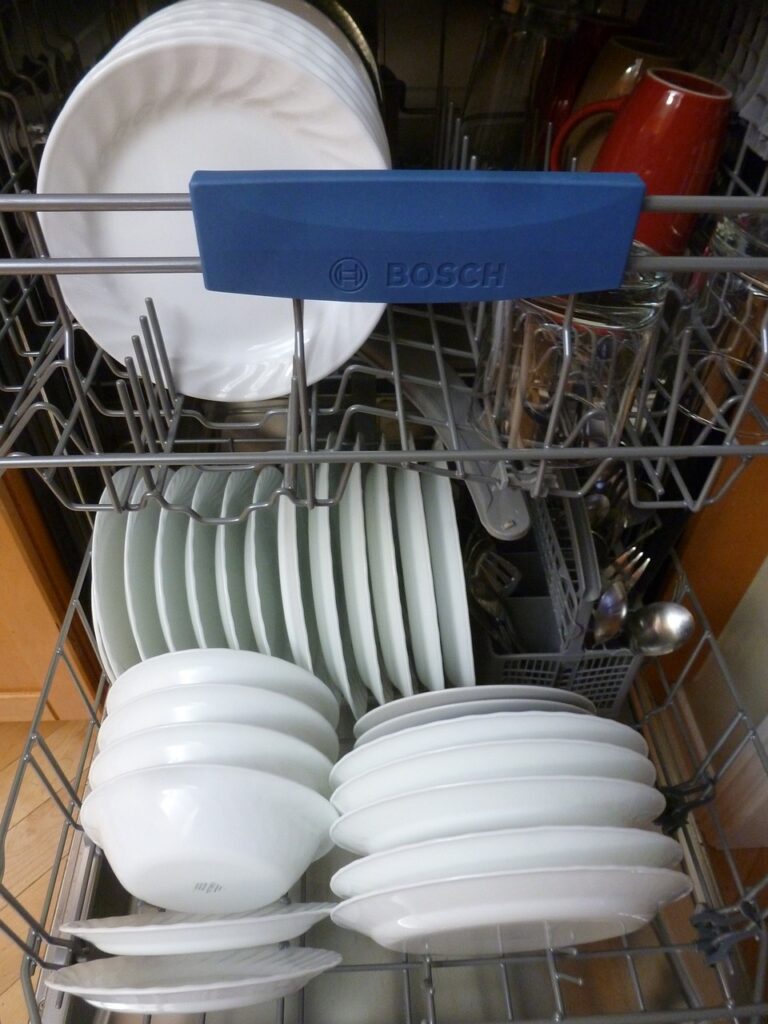In the choreography of kitchen duties, the dishwasher plays a pivotal role, orchestrating the symphony of cleanliness with ease. Yet, when this indispensable appliance begins to leak, it can disrupt the harmony of daily life, leaving us scrambling for solutions. Fear not, for in the face of a leaking dishwasher, swift action and informed decision-making are our allies. Let’s explore what to do if you find yourself contending with a leaky dishwasher and when it might be time to bid adieu to your faithful appliance.
- Assess the Situation:
Upon discovering a leak emanating from your dishwasher, it’s essential to assess the severity and source of the leak. Begin by inspecting the dishwasher’s exterior and interior for visible signs of water accumulation or dripping. Check the door seal, gaskets, hoses, and connections for any signs of wear, damage, or loose fittings that could be contributing to the leak.
- Identify the Cause:
Leaks from dishwashers can stem from a variety of sources, including faulty door seals, damaged hoses, clogged drains, or cracked components. Determining the root cause of the leak is crucial in devising an effective solution. If the leak is minor and attributable to a simple issue such as a loose hose connection, it may be possible to remedy the problem with basic repairs.
- Take Immediate Action:
Addressing a leaking dishwasher promptly is paramount to prevent water damage and mitigate the risk of mold or mildew growth. If you’re able to identify and resolve the cause of the leak yourself, do so expediently. For more complex issues or if you’re unsure of how to proceed, consider enlisting the services of a professional appliance repair technician to diagnose and fix the problem.
- Consider Repair vs. Replacement:
When evaluating whether to repair or replace a leaking dishwasher, several factors come into play. Consider the age and overall condition of the appliance, as well as the cost of repairs versus the cost of a new dishwasher. If the leak is indicative of underlying mechanical or structural issues and the appliance is nearing the end of its lifespan, it may be more cost-effective in the long run to invest in a new dishwasher.
- Explore Energy Efficiency:
Modern dishwashers boast advanced features and energy-efficient designs that can lead to significant savings on water and energy bills. If your current dishwasher is outdated or inefficient, replacing it with a newer model may not only resolve the leak but also enhance the overall efficiency and performance of your kitchen appliance lineup.
- Installation Considerations:
When replacing a dishwasher, it’s essential to consider installation requirements such as size, configuration, and compatibility with existing plumbing and electrical connections. Measure the space available for the new dishwasher to ensure a proper fit, and consult with a professional installer if needed to ensure seamless integration into your kitchen layout.
- Environmental Impact:
As conscientious stewards of the environment, it’s worth considering the environmental impact of replacing a dishwasher. Look for ENERGY STAR certified models that meet stringent energy efficiency standards and prioritize eco-friendly features such as water-saving cycles and low-energy consumption.
In conclusion, a leaking dishwasher is a nuisance that warrants swift attention and careful consideration of repair versus replacement options. By promptly addressing the cause of the leak and weighing the factors influencing the decision, such as age, condition, and efficiency of the appliance, you can navigate the situation with confidence and restore harmony to your kitchen. Whether opting for repairs or investing in a new dishwasher, prioritize efficiency, performance, and environmental responsibility to ensure years of reliable service and sparkling clean dishes.

